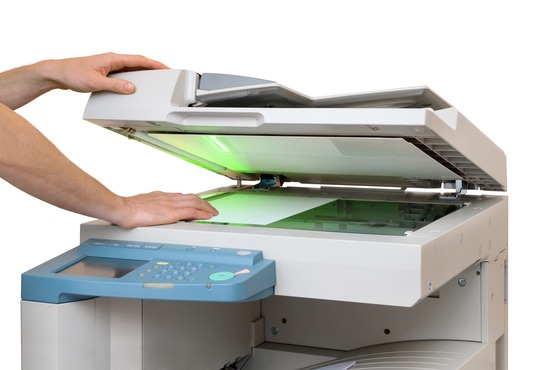Even if your office is already paperless, you will still have to deal with an occasional influx of paper documents. The best way to manage these is to immediately convert them into digital files so that they can quickly be integrated into your paperless office system. In order to do so, you’ll need to scan them. Improperly scanning your paper documents, however, will exacerbate the length of the process and possibly harm the quality of the scans. That’s why it’s essential to have a system in place to effectively convert your documents. Here is how to scan documents properly for best results:
Kevin D'Arcy

Recent Posts
How to Scan Documents Properly for the Best Results
Topics: document scanning, Document Scanner, how to scan documents
Going paperless is a must for your office for two important reasons: you will save a lot of money and make your office run much more efficiently. In order to get the most out of a paper-free office space, you need to have a set of best practices in place to streamline the process. That being said, here are six paperless office best practices that you need to implement as soon as you have converted from paper to digital documents:
Topics: document scanning, paperless office, Document Management and ECM
Document Management Process Steps: What Happens to Your Documents From Start to Finish
Relying on paper to store your documents has proven to be an inefficient, cumbersome and costly approach to document management. You can significantly mitigate all of these drawbacks by doing away with paper and focusing on using digital documents instead. That being said, the digital document management process is much different from dealing with paper files. In order to fully take advantage of the benefits of digital files, you need to understand this process. Fortunately, it is not difficult to implement once you understand what is involved. Here are the four steps that you need to streamline your digital document management process:
Topics: document scanning process, Document Managing Process, Document Management and ECM
Why Choose Cloud Based Document Management Systems?
Once your company has started taking advantage of the benefits of modern technology by converting its paper documents to digital files, you will need a solution to manage it all. There are plenty of document management solutions out there, and the best among them are cloud based. Here is why you should choose cloud based document management systems over the alternative:
Topics: Cloud Computing, cloud vs. on-site, digital storage, document storage, data storage
For libraries and archives, data is the only asset that really matters. Unfortunately, it can be difficult to consistently preserve all of the data that your library or archive stores because physical storage mediums such as paper and microfilm break down over time and are very susceptible to damage. What's more, these mediums are expensive and time consuming to reproduce. Unless you have a high-tech, airtight facility wherein nobody has physical access to your archives, this can make the outlook for long-term preservation seem dismal.
Topics: digitizing library, archives, digital archives
Now that you have converted your paper documents to digital files, it is time to find a good online cloud storage solution for your needs. With so many online storage solutions out there, however, it can be difficult to choose which one is right for your organization's needs. To help make your choice a little easier, we are going to list the four best online storage solutions and explain what makes them so great.
Topics: online document management, records storage, digital storage, document storage
Paper cuts: the inevitable scratch that everybody loves to hate. There’s no worse feeling than paper and skin colliding. Whether it is a light graze or a full on assault, there is only one culprit in this situation: paper.
Topics: paperless office
How the Retention Period for Financial Records Can Impact Your Business
It goes without saying that your company's financial records are very important. But how long should you keep them for? The required record retention period for financial records must be closely adhered to. Here are some reasons why not complying can have a seriously negative impact on your business:
Topics: Financial Document Management in Ontario, accounting, record retention
4 Methods for Successful Electronic Medical Records Implementation
If you have decided that you want to upgrade your medical practice's logistical operations to include electronic medical records (EMRs), then you need to stop, breathe, and take a step back. While you are making the right decision switching from paper medical records to EMRs, making this change will be a headache if you do not use the right methods - the wrong methods for electronic medical records implementation can cause a lot of serious issues, including:
Topics: EMR, electronic medical records
The Ultimate Cheat Sheet on Records Management Legislation
Our increasing dependence upon computers has mandated that the government take action to protect us. As a result, there has been a great deal of records management legislation passed over the past few years. There has been so much legislation enacted, in fact, that it can be overwhelming for anybody whose career doesn't involve politics to try and sift through. That is where we come in. In order to make sure that you are fully prepared for the latest changes in the law, we are going to provide you with the following ultimate cheat sheet on records management law.
Topics: records management legislation, records management laws










.jpg)